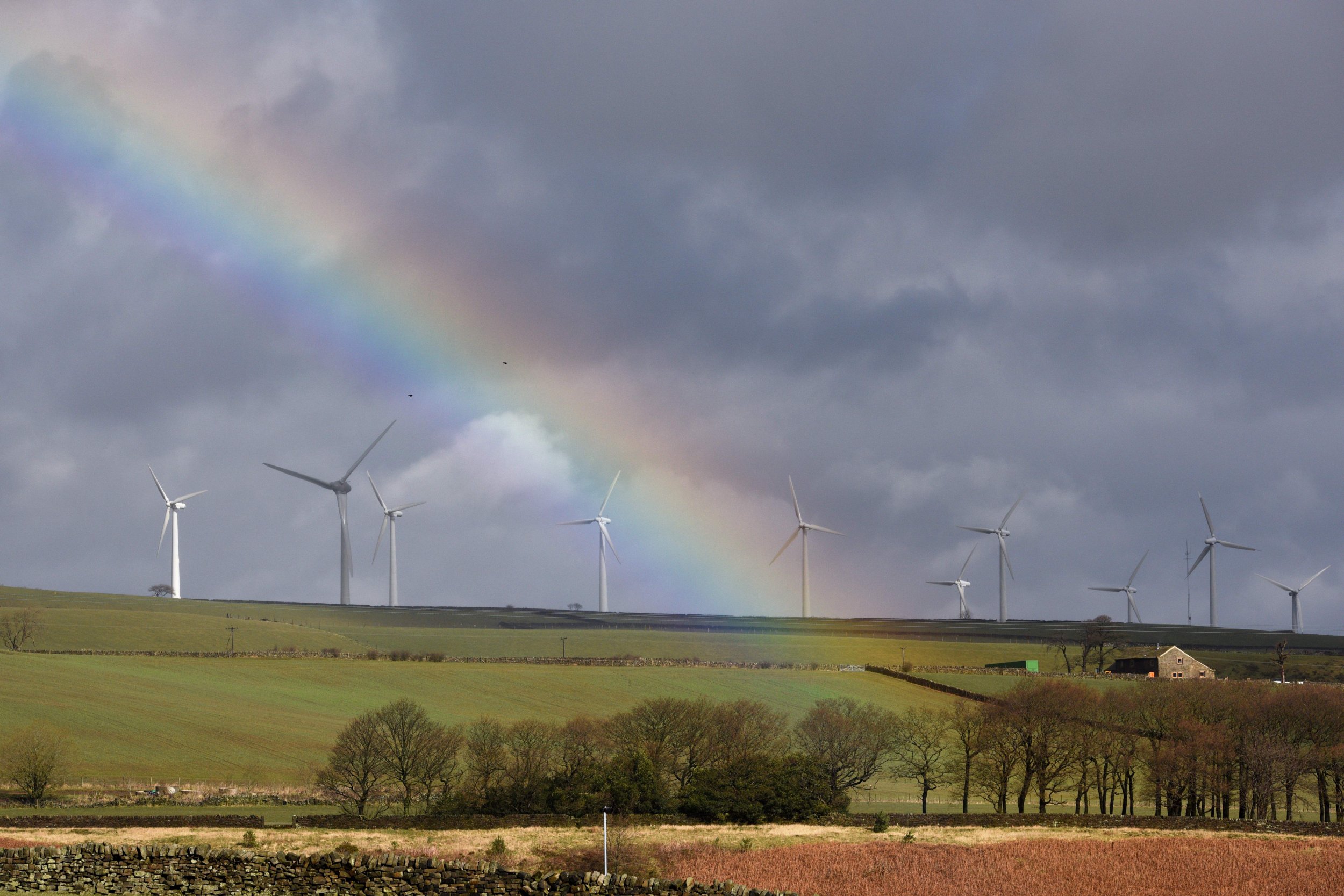
For the first time, the U.K. has too much electricity and may need to limit the amount of renewable energy it produces this summer.
National Grid, which is responsible for balancing Britain's power supply and demand, has warned generators that they may have to "reduce their output during some weeks," in a report released this week.
Historically, the national electricity grid was largely balanced because power plants would not generate more electricity than companies were buying. But renewables have been so efficient, that they are now generating more energy than the market demands, every time the wind blows or the sun shines.
Storing energy is not a new idea, and it is an option, but building massive banks of batteries is expensive.
So National Grid said there is a possibility that it will have to "issue emergency instructions to inflexible generators," telling them to "power off" their plants.
For clarification, by "inflexible generator," we mean nuclear, combined heat and power, hydro and wind generators. And an "emergency instruction" is essentially a tool National Grid has to force these inflexible generators to reduce their output in order to balance supply and demand—if they do not respond commercially.
This is known as a Negative Reserve Active Power Management (NRAPM) and it is designed to encourage wind farms or solar plants to reduce their output and create downward flexibility on the system.
Since records began in 2006, National Grid has never issued a national NRAPM, so making the warning is unprecedented in the U.K.
The report states: "In the summer, we see a significant reduction in demand on the transmission system. As a result, we need to make sure that there is sufficient flexible generation available to meet demand while maintaining frequency response. This ensures that the system can respond to the largest generation or demand loss.
"Based on current data, there is a risk that we may need to ask inflexible generators to reduce their output during the weeks commencing June 20, July 25 and August 29."
The surplus in electricity, National Grid said, has been attributed to the growth of renewable sources such as wind and solar farms—renewables as a whole now make up 24.7 per cent of the electricity mix.
The rapid rise of renewables—which has seen wind power generation rise by 15 per cent as well as a flurry of solar installations completed ahead of recent subsidy cuts—has led the National Grid to introduce these new market measures to "keep the system secure."
"The Summer Outlook Report presents National Grid's view of the gas and electricity systems for the summer ahead," a spokesman tells Newsweek . "It is designed to inform and enable the energy industry to prepare for the summer months.
"Our role is to transport energy from where it's generated, to where it's needed, and balance the network. We don't supply or generate, but the Summer Outlook Report helps the industry to plan ahead."
Uncommon Knowledge
Newsweek is committed to challenging conventional wisdom and finding connections in the search for common ground.
Newsweek is committed to challenging conventional wisdom and finding connections in the search for common ground.
About the writer
To read how Newsweek uses AI as a newsroom tool, Click here.








